
Female genital mutilation (FGM) is the ritual cutting or removal of some or all of the vulva. The practice is found in some countries of Africa, Asia and the Middle East, and within their respective diasporas. As of 2023, UNICEF estimates that "at least 200 million girls... in 31 countries"—including Indonesia, Iraq, Yemen, and 27 African countries including Egypt—had been subjected to one or more types of FGM.

Efua Dorkenoo, OBE, affectionately known as "Mama Efua", was a Ghanaian-British campaigner against female genital mutilation (FGM) who pioneered the global movement to end the practice and worked internationally for more than 30 years to see the campaign "move from a problem lacking in recognition to a key issue for governments around the world."
International Day of Zero Tolerance for Female Genital Mutilation is a United Nations-sponsored annual awareness day that takes place on February 6 as part of the UN's efforts to eradicate female genital mutilation. It was first introduced in 2003.
Khitan or Khatna is the Arabic term for circumcision, and the Islamic term for the practice of religious male circumcision in Islamic culture. Male circumcision is widespread in the Muslim world, and accepted as an established practice by all Islamic schools of jurisprudence. It is considered a sign of belonging to the wider Muslim community (Ummah).

There is a widespread view among practitioners of female genital mutilation (FGM) that it is a religious requirement, although prevalence rates often vary according to geography and ethnic group. There is an ongoing debate about the extent to which the practice's continuation is influenced by custom, social pressure, lack of health-care information, and the position of women in society. The procedures confer no health benefits and can lead to serious health problems.

Female genital mutilation (FGM), also known as female genital cutting (FGC), female genital mutilation/cutting (FGM/C) and female circumcision, is practiced in 30 countries in western, eastern, and north-eastern Africa, in parts of the Middle East and Asia, and within some immigrant communities in Europe, North America and Australia. The WHO defines the practice as "all procedures that involve partial or total removal of the external female genitalia, or other injury to the female genital organs for non-medical reasons."

Abolqasem Salavati is an Iranian judge and former head of the 15th branch of the Islamic Revolutionary Court in Tehran, Iran. In recent years, he had been the judge of numerous controversial cases. He has been sanctioned by the United States and the European Union.
Nigeria has the highest rate of female genital mutilation (FGM) in the world in total numbers. It is usually experienced by girls aged 0 to 15 years old. It involves either partial or complete removal of the vulva or other injury to the female genital organs and has no medical benefit.

Kameel Ahmady is a British-Iranian scholar working in the field of social anthropology, with a particular focus on gender, children, ethnic minorities, and child labour. Kameel Ahmady, born in 1972 in Naghadeh, West Azerbaijan Province, is an Iranian-British researcher and social anthropologist known for his research and activities in the fields of social anthropology and harmful traditional practices. He is the coordinator and developer of more than 11 research study books and 20 scientific articles in Persian, English, Turkish, and Kurdish on subjects such as child marriage, temporary marriage, White marriage, female genital mutilation/cutting (FGM/C), Male circumcision, child labour and children's scavenging, LGBTQ+ issues and identity and ethnicity.
Order of Research is one of the badges of honor in Iran, established by "Council of Iran Ministers" on November 21, 1990. According to "Article 8" of the "Regulations on the Awarding of Government Orders" of Iran, the "Order of Research" is awarded to individuals who have been the origin of fundamental transformation or rare service in the following ways:
- Introducing new research methods and techniques
- Studies and research that are the source of scientific change
- Finding new research methods
- Transfer of fundamental research to applied fields
- Every important innovation, originality, invention, and discovery
The legal status of female genital mutilation (FGM), also known as female genital cutting (FGC), differs widely across the world.

The Iranian Law and Legal Research Institute, formerly Allameh Legal Encyclopedia Research Center, is a scientific and juridical research institute, composed of four groups: encyclopedia writing, legal theorization and intellectualism, studies on social impact of laws, and studies on "extra" laws. Operating under the license of the Ministry of Science, Research and Technology of Iran, this research institute is one of the first legal entities to be recognized as a knowledge-based company by the Vice-Presidency for Science and Technology of Iran.

Gisuborān meaning haircutting (Persian:گیسوبران) is one of the mourning rituals in Iranian culture. This ritual gives a sad and emotional state to mourning. In 2022 women in Iran and later internationally used haircutting as a protest against the treatment of women in Iran. The BBC included an unknown woman cutting her hair as one of their 100 Women in 2022.
Rayehe Mozafarian is an Iranian women and children rights activist, author, and documentary filmmaker. The founder of Stop FGM Iran group and Woman and Zoorkhaneh campaign, she is best known for her researches and raising awareness about female genital mutilation in Iran and challenging the country's Zoorkhaneh Sports Federation to unban women from participating Iranian's ancient sport pahlevani and zoorkhaneh rituals.
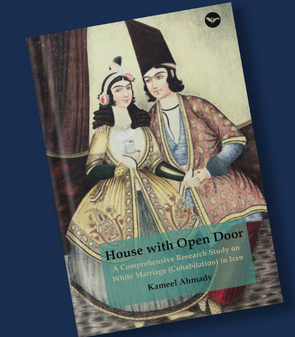
House with Open Door is a book by Kameel Ahmady that examines the social phenomenon of cohabitation, called "white marriage" in Iran, in which couples live together without legally marrying.
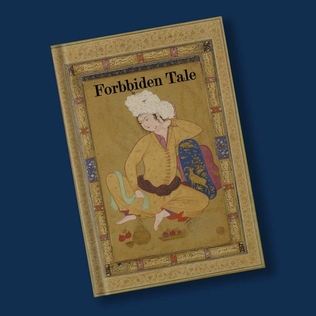
Forbidden Tale was written by Kameel Ahmady, a British Iranian social researcher and anthropologist, and published by Mehri Publishing House in 2020 in London. The book is based on Ahmady's research from 2017 to 2018, which aimed to investigate the challenges and attitudes towards the Iranian transgender and homosexual community. The book later become available in Persian, Kurdish, French, Spanish, and English.
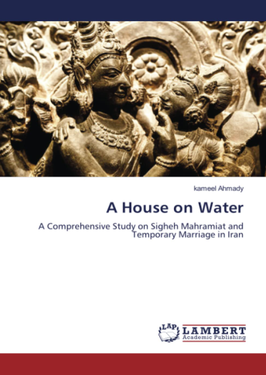
A House on Water is a book that explores the social and psychological impacts of temporary marriage and religious concubinage in Iran, researched and coordinated by Kameel Ahmady, a British-Iranian anthropologist and social researcher. The book is based on a research project that Ahmady and his team conducted between 2017 and 2018 in three major cities of Iran: Tehran, Isfahan, and Mashhad. The book aims to provide a historical overview of temporary marriage in Iran and the world and to examine its prevalence among different social groups and its consequences for those who choose this type of marriage.
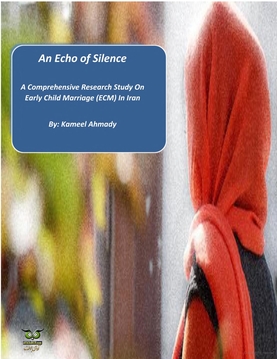
Echo of Silence is a book related to the issue of women's studies in Iran. Kameel Ahmady, a social anthropologist and researcher, supervised a research book titled "Echo of Silence", which is a study about child marriage in Iran. It was published on October 11, 2016, which is also the International Day of the Girl Child. The book is based on research that Ahmady and his colleagues conducted in seven provinces of Iran between 2015 and 2016. They aimed to understand the nature of child marriage in Iran and provide suggestions for social and cultural policymakers. The Persian version of this book was published by Shirazeh Publishing House and unveiled national in library and the English version published in 2017 by Nova publishing in USA.
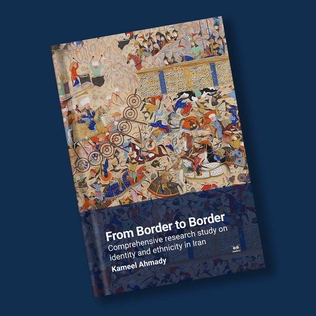
A research study entitled From Border to Border was by Kameel Ahmady, a British Iranian anthropologist and social researcher, and his colleagues to examine the challenges and opportunities of ethnic and local identities in Iran and the interaction of the political system with various ethnic groups and local identities between 2019 and 2021 in 13 provinces of Iran. The results of this research were published in a book with the same title by Mehri Publishing House in London in 2021. The book was later reprinted by Avaye Buf publishing house in Denmark. This book has been published in three languages Persian, English and Kurdish.
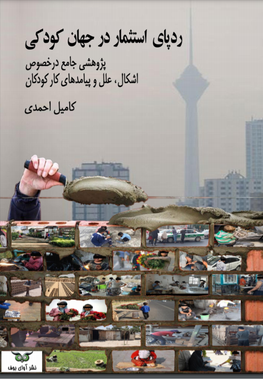
The book Traces of Exploitation in the World of Childhood is a study by Kameel Ahmady, an Iranian-British researcher and anthropologist, and his colleagues, focused on investigating child labour in Iran. The book was published by Avaye Buf in Farsi and Kurdish languages in 2021, coinciding with World Child labour Day on June 12. The publication came after the completion and release of the research project " Childhood Yawn," which Ahmady supervised for the Association for the Protection of Children and Adolescent Rights. The book is part of a series of activities and research that Ahmady and his colleagues have conducted to explore and deeply investigate different forms of children's work and the reasons that lead them to this type of work. The book highlights the causes and reasons behind child labour, which include providing a part of living expenses, learning skills for future employment, and the impracticality of formal education and training in acquiring skills and finding a job in the labour market. It also introduces some of the most significant consequences of child labour, such as the exploitation of children's work, emotional and psychological crises, personality disorders, and damage to the process of socialization.













